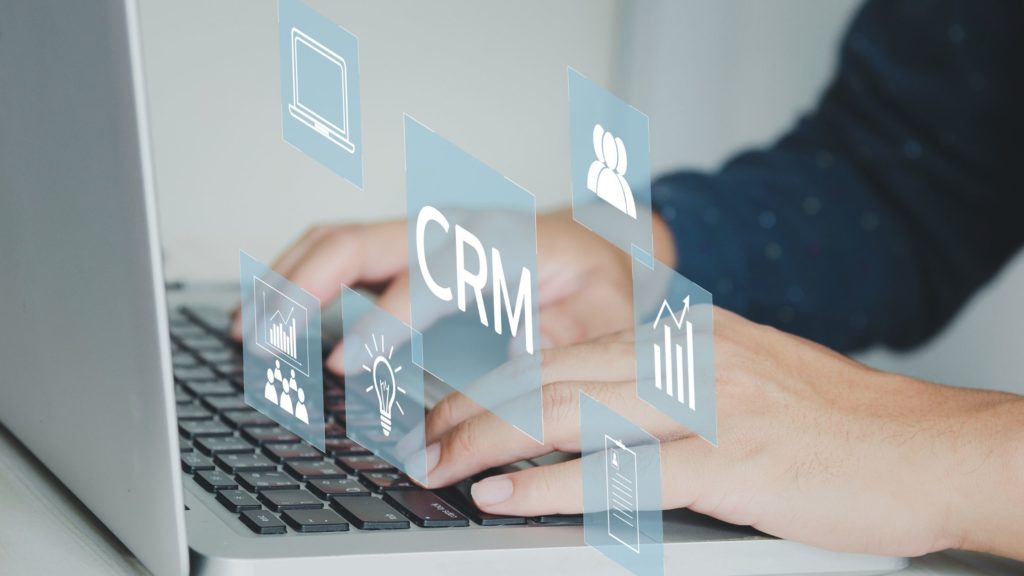CRM: What is it and Why is it Important For Your Company
CRM (customer relationship management) software is a versatile tool that manages current and potential customer interactions on one central platform. Its primary function is to help your company build relationships by storing, managing, and organizing customer data. Almost every small business can benefit from using CRM software because it’s available in a wide range of strategies and applications that can be modified to suit any company.
According to crm.org, CRM is projected to grow at 14.27% from 2020 to 2027. This growth is driven by consumer demand for better customer service and a more personalized customer experience. CRM enables businesses to anticipate customer needs by understanding trends in purchasing histories.
Here at FineView Marketing, CRM technology helps us to create a smoother and more consistent customer experience for our clients.

Key Business Benefits Provided by CRMs
Enhanced Customer Service and Satisfaction
CRM software’s main benefit is improved customer relationships. A CRM manages contacts by gathering customer demographics, purchase records, and previous messages across all channels. This ensures that team members have easily accessible information at their fingertips and can provide an enhanced customer experience.
Surging Sales
A CRM helps you capture quality leads, nurture them, and turn them into paying customers. You get a complete view of customer data like personal details, the communication you’ve had with them, and more in one centralized place.
Customer Retention
Once you’ve converted leads, you can use your CRM and the information it provides to build relationships and encourage customer retention. The CRM is a simpler interface for a collection of data that helps businesses track customer behavior to understand and quickly address consumer pain points and to encourage customer loyalty.
Centralized Database
A CRM keeps all of your information in one place, making it easy for your team to see customer interests and interactions. Having this information centralized saves your employees time and makes for a more productive customer experience. You’ll be able to know what the data means and how to use it effectively.
Comprehensive Analytics
CRM software typically has analytic capabilities to break down data into actionable items and easily understood metrics. Click thorough rates, bounce rates, and demographic information help your company to make informed decisions about the success of a marketing campaign and then optimize accordingly.
Increased Productivity and Efficiency
CRM marketing automation technology expedites menial tasks like drip campaigns freeing up your staff to focus on tasks like creating content and handling client concerns. It can also show you a dashboard of how your business processes are working and where workflows could improve, preventing important tasks from slipping through the cracks.
Lead Management
Lead nurturing can be a complex, time-consuming process. A CRM manages the many opportunities to communicate by tracking all interactions and alerting your staff when it’s time to reach out to a prospect. According to Michael Miller, CEO of VPN Online, “With every phase in the design and every email you sent out reviewed, you can quickly figure out the next move to make. It’s like seeing it from the top view, and you can easily create a decision on what to do next.”
Improved Customer Segmentation
A CRM automatically segments your contact lists based on your criteria. For example, you can sort contacts by location, gender, age, buyer stage and more. This provides your staff with a more meaningful understanding of the customer and more valuable interaction. Data from the CRM allows communication to reflect customer interests and values.
Streamlined Internal Communications
A CRM not only facilitates efficient communication between your business and your customer, but makes it easier for your employees to communicate with each other. Your team is able to maintain a unified brand voice because a CRM makes it easy to see how other employees are speaking with prospects. Team members can tag each other on projects and send alerts, messages, and emails all within one system.
Takeaway
CRM software enables companies to increase customer satisfaction, conversions, and loyalty, resulting in more internal efficiency and higher profits. As a business owner, not exploring your CRM options could be a huge oversight.


